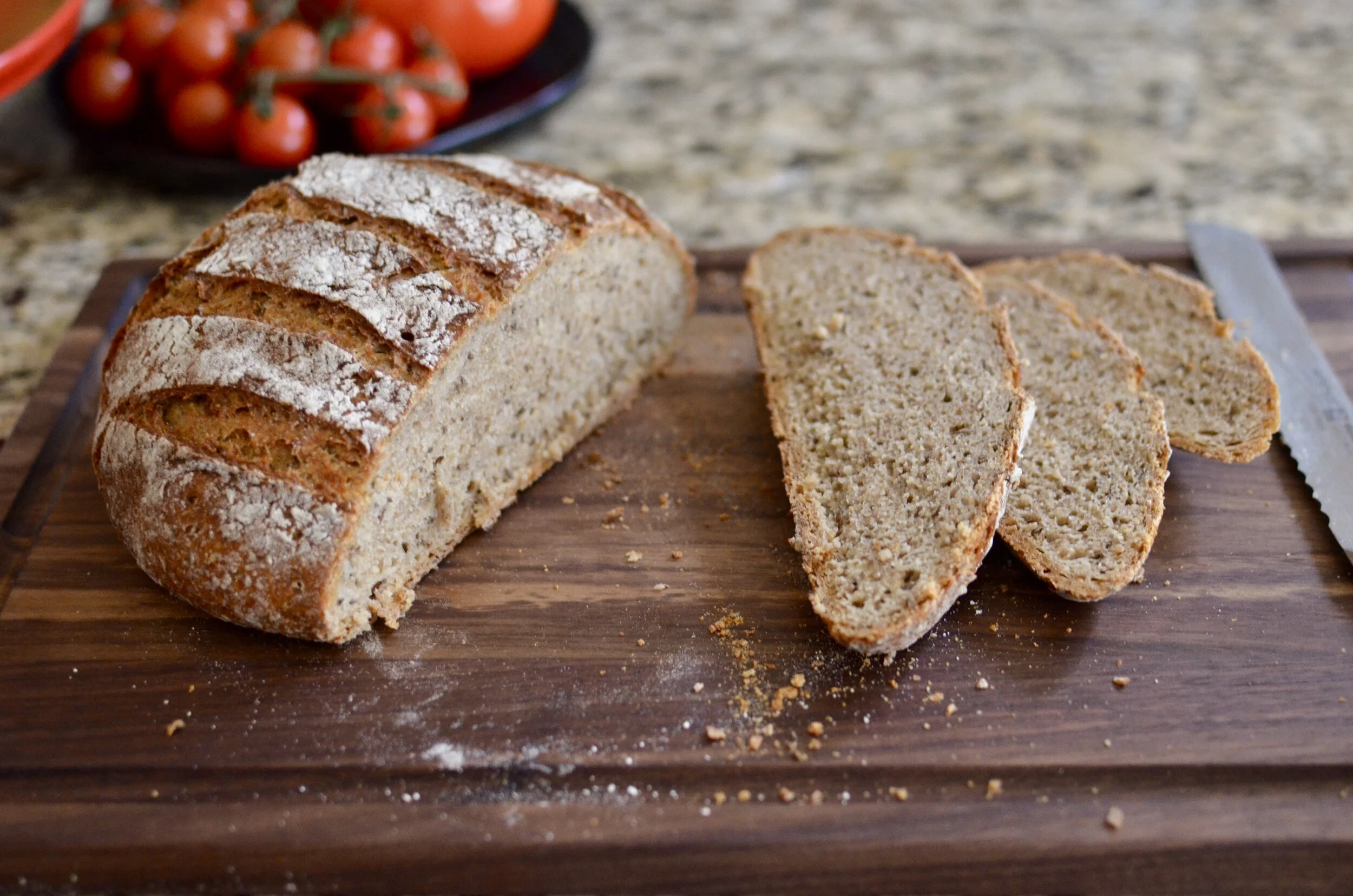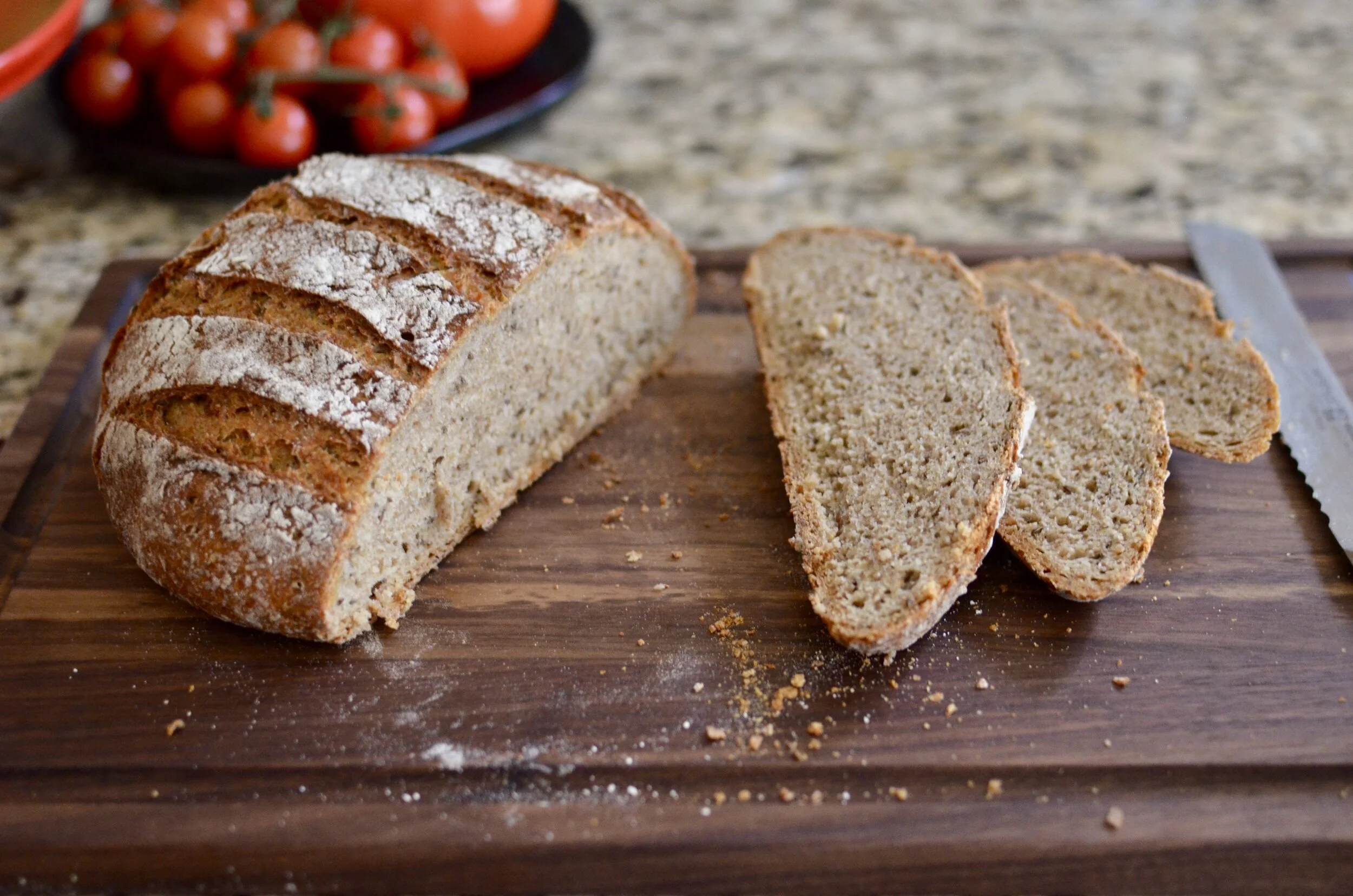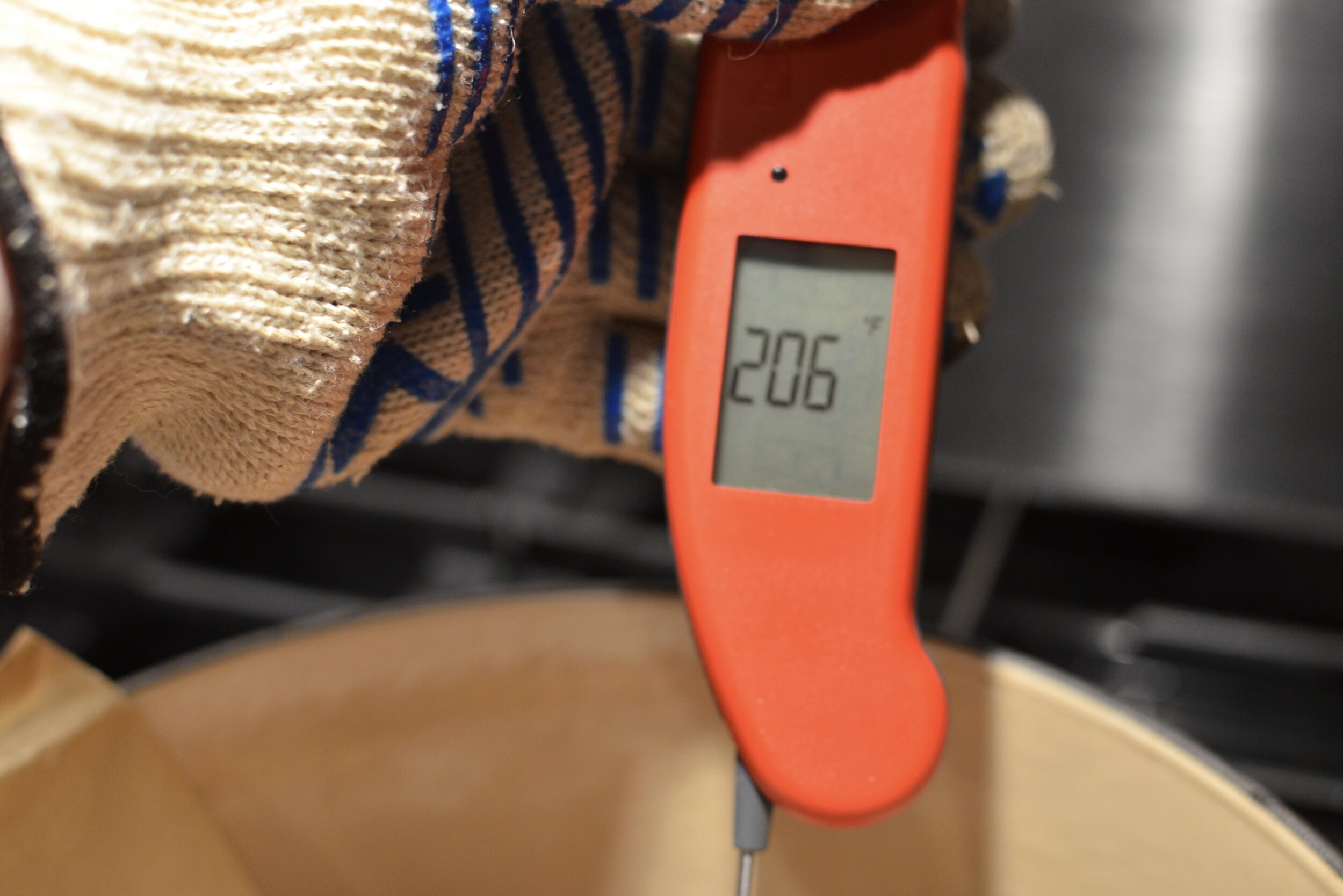No-Knead Rustic Rye Bread
Patricia @ ButterYum
This rustic rye bread is heavy and dense, with lots of chew. It requires no kneading, just time. Mix the ingredients together in a bowl, cover and walk away. After 18-20 hours, shape and bake. Super simple and the results are nothing short of spectacular.
Start by placing all the dry ingredients in a large mixing bowl.
Mix, mix, mix.
Add the water, yeast, and buttermilk.
Mix until no traces of dry ingredients remain. Cover well with plastic wrap and set aside at room temperature for 18-20 hours. Easy!
About an hour before baking, preheat the oven and…
Preheat a covered dutch oven on the center rack too.
Fast forward to the next day (20 hour after mixing the dough). and here’s how it looks. I used a bowl that is very wide, so it’s hard to see (in the photo) how much the dough has risen, but it has.
Carefully turn the dough out of the bowl and onto a floured surface. Don’t “punch the dough down”
Gather the edges of the dough and pull them to the center, like this.
Turn the dough over so the gathered edges are on the bottom. Use your hands to gently shape the dough into a round boule.
This step isn’t necessary, but I like to place my dough on a long strip of parchment paper which is helpful when lowering the dough into the searing hot dutch oven.
Allow the dough to rest for 20 minutes, covered - I like to use the same mixing bowl.
After 30 minutes, uncover the dough and set it aside.
Remove the extremely hot dutch oven from the preheated oven. Be sure to place a towel or oven mitts on the hot handles to prevent accidental burns.
Score the top of the dough with a baker’s lame (pronounced lahm). If you don’t have a lame, you can use a clean razor blade or a very sharp knife.
Immediately lower the dough into the searing hot dutch oven, cover, and return to the oven. Lower the oven temperature to 450F.
Bake for 50-60 minutes, or until the bread’s internal temperature reaches 205-210F.
Ooooo, I wish you could smell it my kitchen right about now.
Allow bread to cool completely before enjoying!
Items used to make this recipe:
(affiliate links)
6-quart dutch oven https://amzn.to/34FJqAN
100% stone ground rye flour https://amzn.to/3adFmFp
baker’s lame https://amzn.to/3fwgQaG
vital wheat gluten https://amzn.to/3T2dqu3
caraway seeds https://amzn.to/3fpqCLO
dry buttermilk powder https://amzn.to/3sDbT25
No-Knead Rustic Rye Bread
makes 1 round loaf or boule
Ingredients
2 cups stone ground whole grain rye flour
2 cups bread flour
3 tablespoons caraway seeds
1 1/2 tablespoons vital wheat gluten (see notes below)
2 teaspoons fine sea salt
2 teaspoons granulated sugar
1 teaspoon active dry yeast
1 3/4 cups water, room temperature
1/4 cup buttermilk (see notes below)
Directions
In a large mixing bowl, combine the flours, caraway seeds, vital wheat gluten (if using), sea salt, sugar, and yeast.
Add water and buttermilk; stir until a shaggy mass forms and no traces of dry ingredients remain; cover well with plastic and set aside at room temperature for 18-20 hours. Note: I added the yeast to the water in the photos above, but it isn’t necessary.
An hour before baking, preheat oven to 500F with a 6 or 8-quart cover dutch oven placed on the center rack.
Gently turn the bread dough out of the mixing bowl and onto a floured surface. Do Not punch the dough down.
Gather the edges of the dough and pull toward the center, pinching to seal them together, then turn the dough over so the pinched ends are on the bottom.
Use your hands to gently tuck and turn, forming a round loaf; cover with inverted bowl and allow dough to rest for 30 minutes.
Just before baking, uncover dough and use a baker’s lame (see notes below) or sharp knife to make several score marks across the top.
Remove preheated dutch oven from oven and lower oven temperature to 450F.
Carefully place dough into the hot dutch oven (I like to do this with a parchment paper sling).
Cover dutch oven and place back on center rack; bake for 50-60 minutes or until the internal bread temperature reaches 205-210F.
Notes
The cooking vessel I prefer to use is enameled cast iron, but a similarly-sized cast iron, pyrex, or ceramic vessel with a tight-fitting lid will also work.
My rye flour of choice is 100% stone ground, but use any rye you have.
Vital wheat gluten adds a little more “chew” to the bread, but if you don’t worry if you don’t have it - the bread will still be good.
If you don’t have a baker’s lame (pronounced lahm) to score the top of the dough, you can use a new razor blade or very sharp knife.
No buttermilk? You can make a substitute by combining 1 teaspoon white vinegar or lemon juice to 1/4 cup (less 1 teaspoon) milk; rest for 5 minutes or more before using. Alternately, you can purchase dry buttermilk powder (paid link) that you mix with water (it’s shelf stable and a great item to keep with your baking supplies).






















